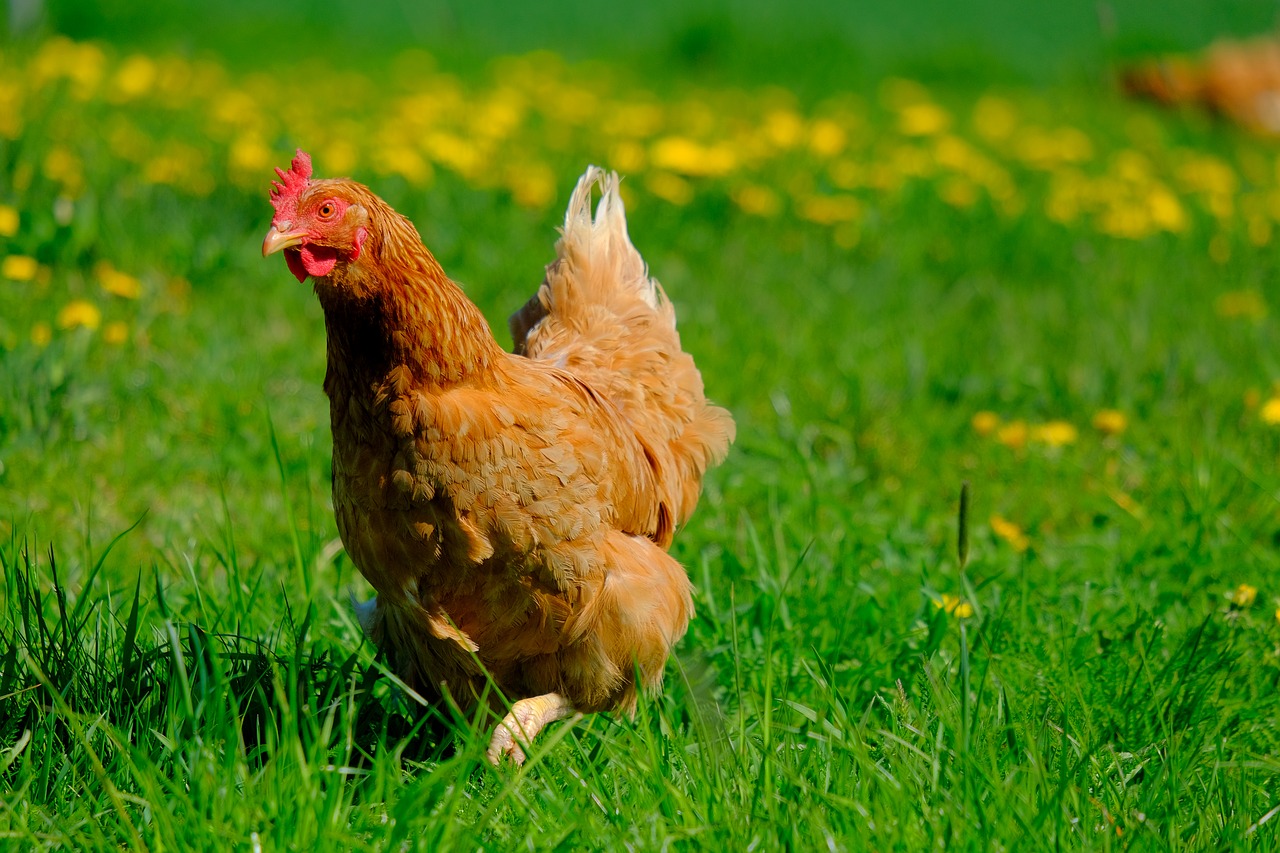If you recently decided to raise chickens, you might be wondering, “how long do chickens live?”
In most cases, a chicken can live between five and ten years. That being said, different breeds often have dramatically different lifespans.
There are plenty of factors that impact how long a chicken lives, including the threat of predation and varying flock dynamics, diseases, breed, and more.
In this article, we’ll tell you about everything that can come into play when you’re raising chickens – and give you an average look at life expectancy by breed.
What Factors Affect a Chicken’s Life Span?
As chicks, chickens go through five main live stages to become adults. There are many things that can lengthen or shorten their lifespans during this process.
Here are a few of the most common factors that affect how long chickens live:
Disease
While most diseases that commonly afflict backyard flocks aren’t deadly, there are some that can be quite dangerous or even fatal. Even minor issues, like parasites and lice, can slowly drain away the energy reserves of a chicken and reduce its overall lifespan.
For example, parasites like mites, lice, and worms can all cause skin irritation, feather damage, anemia, and discomfort. To help reduce these problems and enable your backyard chickens to live longer, fuller lives, try to worm and dust your chicken coop on a regular basis and feed a healthy, nutritious diet.
The various diseases of poultry have been studied extensively in recent years, the results of which show that hens that live in a crowded chicken coop are more likely to suffer from communicable diseases. The avian influenza outbreak was one such example – this epidemic killed 90% of its victims in crowded commercial settings.
Housing and Care
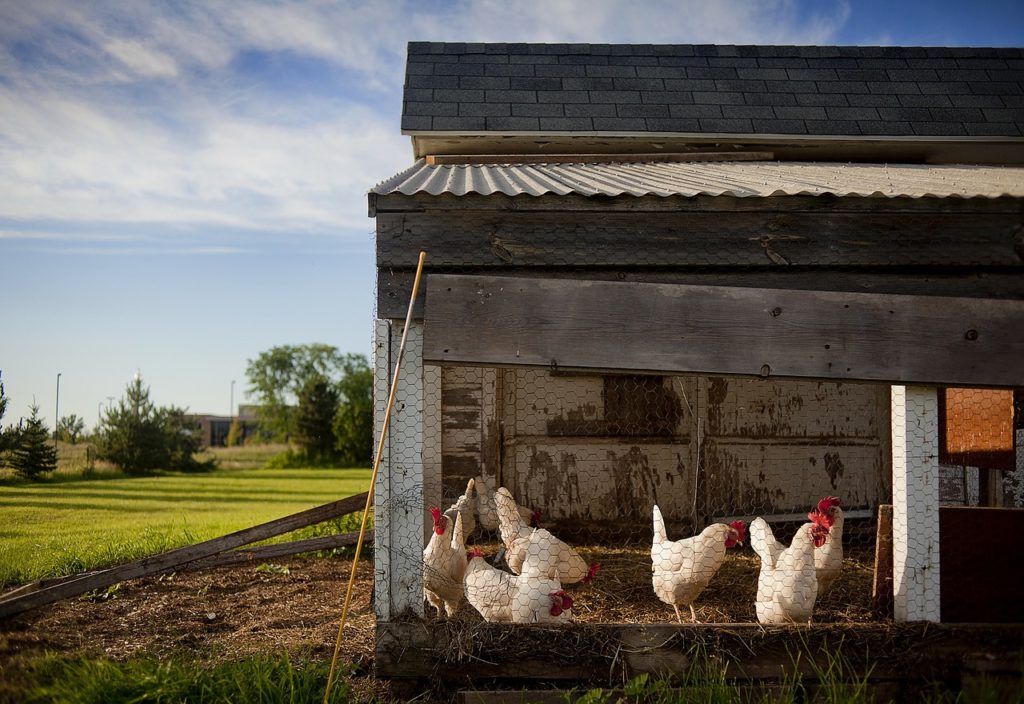
Luckily, this isn’t a factor that comes into play very often anymore when you are considering the lifespan of a chicken. Chicken housing is far better than what it used to be. Many years ago, chickens used to live inside large barns with other types of livestock. Although there are some benefits to do this, it was very easy for chickens to be trampled on by the larger animals.
Plus, predators could often get inside and chickens could even freeze to death. Some people didn’t even maintain living quarters for their chickens at all but instead let them fend for themselves, further reducing their life expectancy.
Nowadays, backyard chickens have specially built chicken coop spaces that are made to protect them in the summer and winter months. Your chickens will not only be protected from the most extreme conditions, but they’ll have secure protection from predators, too.
Similarly, good veterinary care can make the difference between a chicken that lives for one year and one that lives for ten. Chickens are living longer lives simply because they are being cared for properly and there is more attention devoted to disease prevention and treatment.
Nutrition
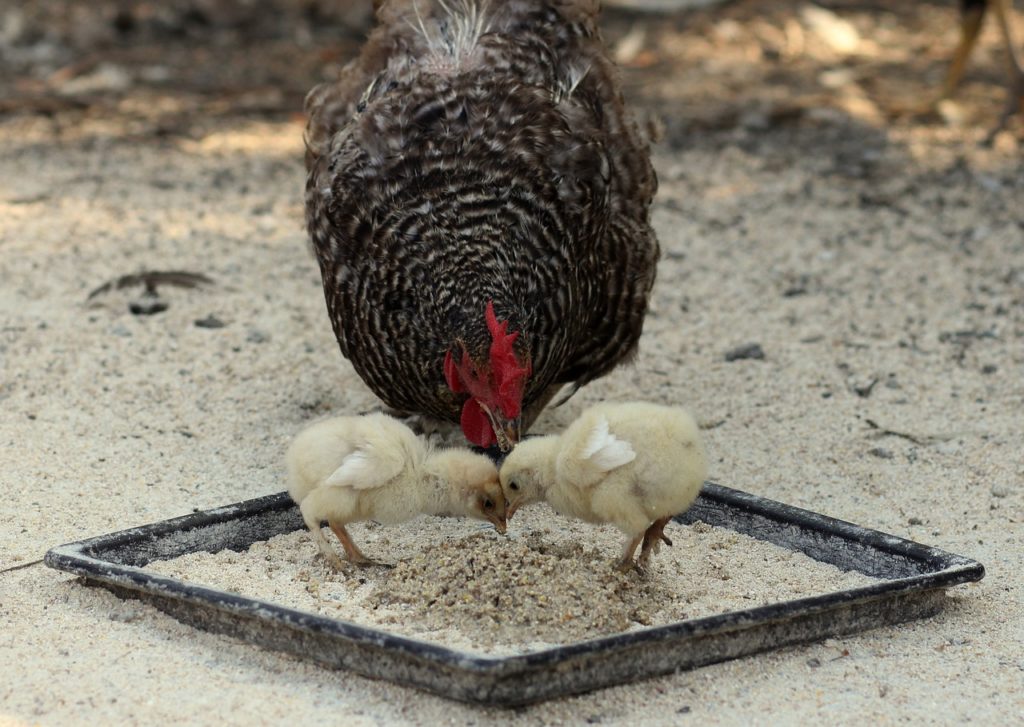
Another way in which the life expectancy of a backyard chicken has increased is in diet and nutrition. In the past, chickens ate table scraps and whatever the farmer wanted to throw their way. Now, however, chickens have access to food that is specially formulated for each unique stage of life. This nutrition helps optimize a chicken’s growth so that it can thrive.
There are ways you can manipulate the diet of your chickens to help them live longer, healthier lives. For instance, you may want to avoid feeding too many treats, as it can lead to obesity, and you might also want to avoid excess protein, too. Not only can this also lead to weight issues, but it can also create kidney problems.
Genetics
“Back in the day,” chickens were not raised as pets. They were raised for eggs and occasionally, for meat, too. Very little attention was given to a chicken’s life expectancy, health, or other genetic traits. A chicken was merely a chicken.
Starting in the 19th century, people started collecting chickens and playing around with their genetics to see if they could better meet our needs and expectations as humans. More wild behaviors were suppressed and while the creation of some hybrid chickens led to a decrease in longevity, other breeds saw an increase.
There are some chicken breeds and individual lines of chickens that, due to their breeding over time, simply live longer than others. On the flip side, some breeds have been interbred so much that it dramatically reduces their lifespan.
Breed
Another factor to consider in addition to genetics is the tenacity and intelligence of the breed. Although it sounds a bit cruel to say, there are some chickens that are simply smarter than others. Some chickens are very attentive to their surroundings – especially when free-ranging – while others will wander blindly into danger.
Many of these characteristics are passed down through a breed and can help increase a chicken’s overall lifespan. A smart bird is much less likely to fall victim to a predator, so it’s a trait that is highly desirable when it comes to evolution.
Keep in mind that while these traits are often breed-specific, they can also be specific to just one or two individuals in a flock, too – if you can, try to make sure you keep those chickens on as breeders. Those are great traits to have!
Gender
A final factor that can affect chicken longevity? Gender. As is true in the human world, the guys just don’t live as long as the ladies. This is dependent on a lot of other factors, of course, but statistically speaking, roosters don’t live as long as hens. This is likely because of their tendency to charge toward a threat instead of run away – which can lead them to fall victim to a variety of threats.
However, if raised in the exact same conditions as hens where no outside threats are present, a rooster has the capability (health-wise) to live just as long as a hen.
Breed Impact: Heritage vs. Hybrid Chickens
If you’re new to raising chickens, you might be confused about the difference between heritage and hybrid chickens. While heritage chickens are those that have been bred and raised naturally, hybrid chickens are those that have been selectively bred for specific characteristics.
Heritage vs. Hybrid Overview
| Heritage | Hybrid |
| Natural egg-laying cycle throughout life | High egg production at first, but then fizzle out |
| Must meet American Poultry Association standards | Doesn’t have any breed standards |
| Must breed naturally | No breeding requirements |
Heritage chickens are natural at laying eggs and can cycle their laying over a period of two to three years- or sometimes even longer. Hybrid chickens, on the other hand, lay hard and then fizzle out. They don’t live as long as heritage birds.
There are several qualifications that a chicken breed must meet in order to be considered a “heritage” breed.
It must mate naturally and grow slowly and have a longer, more productive life when raised outdoors. It must meet the American Poultry Association standard for the breed and come from pure stock, too.
Almost all chickens have been developed by poultry breeders over time – yes, even heritage – but there has been very little work done to alter heritage breeds after the standard has been set with the American Poultry Association.
The same is not true of hybrid chickens.
Which Chicken Breeds Live the Longest? Average Lifespan by Breed
Here are a few chicken breeds that live the longest:
- Rhode Island Red
- Wyandotte
- Orpington
- Plymouth Rock
- Bantam
- Old English Game Foul
Keep reading to find out more details about these breeds!
Rhode Island Red
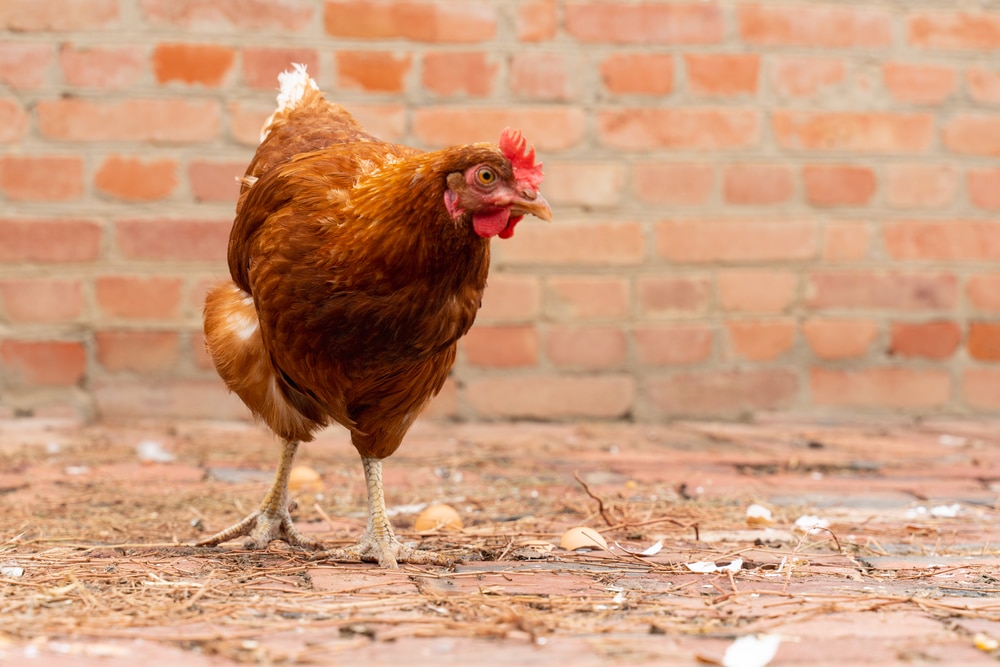
A classic heritage, the Rhode Island Red can be raised for both eggs and meat. Since it is a heritage chicken, it’s genetic lineage is more or less the same as it was when it first came about.
These chickens can handle most weather conditions and tolerate both confinement and free-range settings well. When cared for properly, they can live eight years or more.
Wyandotte
The Wyandotte is another dual-purpose chicken that can be raised for both meat and eggs. When it is raised properly, it can live for six years or more.
Orpington
Another favorite heritage bird is the Orpington chicken. This bird can live much longer than the average bird of other breeds. As a laid back, docile bird, it takes a lot to get the Orpington chicken too excited. It can live for eight years or more when raised in ideal conditions!
Plymouth Rock
Plymouth Rocks are hybrid chickens that are known for being some of the longest-lived of all of their flock mates. They can live for ten to twelve years if they are raised in the proper conditions!
Bantams
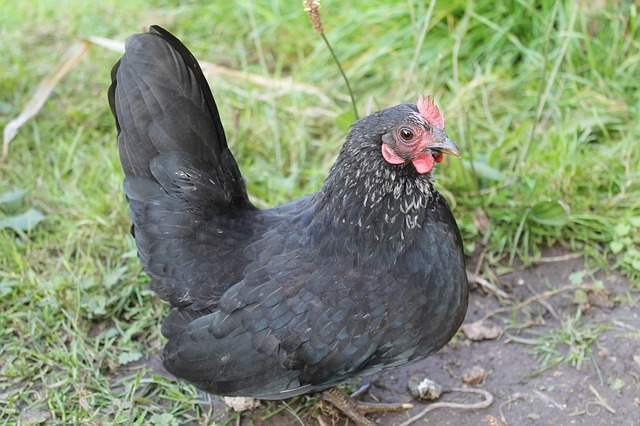
Many chicken keepers argue that bantam chickens live longer than any other breeds. This, however, may be somewhat anecdotal, as there are dozens of types of bantam breeds that you can choose from, all of which have different genetics and behavioral tendencies.
However, there is some truth to this, too. Bantam chickens are much smaller than average chickens, so they don’t have as much mass to maintain. Heavier, large-bodied chickens tend to meet their demise much earlier, so bantams might have an advantage here.
Some of the reason why bantam chickens live longer could have to do with how they are raised, too. Bantams are usually raised as pet chickens and not for egg or meat production of any kind. Because of this, they are more likely to be raised in excellent conditions with all the food and water they want along with ample excess to fresh air and limited threats from predators and the weather.
On average, bantams can live ten years or more before you’ll have to say goodbye.
Old English Game Fowl
Old English Game Fowl are rare, but highly prized among poultry breeders. These chickens tend to be quite aggressive and difficult to raise for people who are new to raising chickens. They were bred during the Middle Ages especially for cockfights – these chickens really know how to fend for themselves!
Because of this, they live long lives. Some live for thirteen to fourteen years- or more. However, you’re not likely to find them in most flocks, as they are so difficult to keep in captivity.
Which Chicken Breeds Have the Shortest Life Span?
Here are a few chicken breeds with the shortest lifespans:
- Golden Comets
- Jersey Giants
- Cornish Cross
Keep reading to find out more about these breeds!
Golden Comets
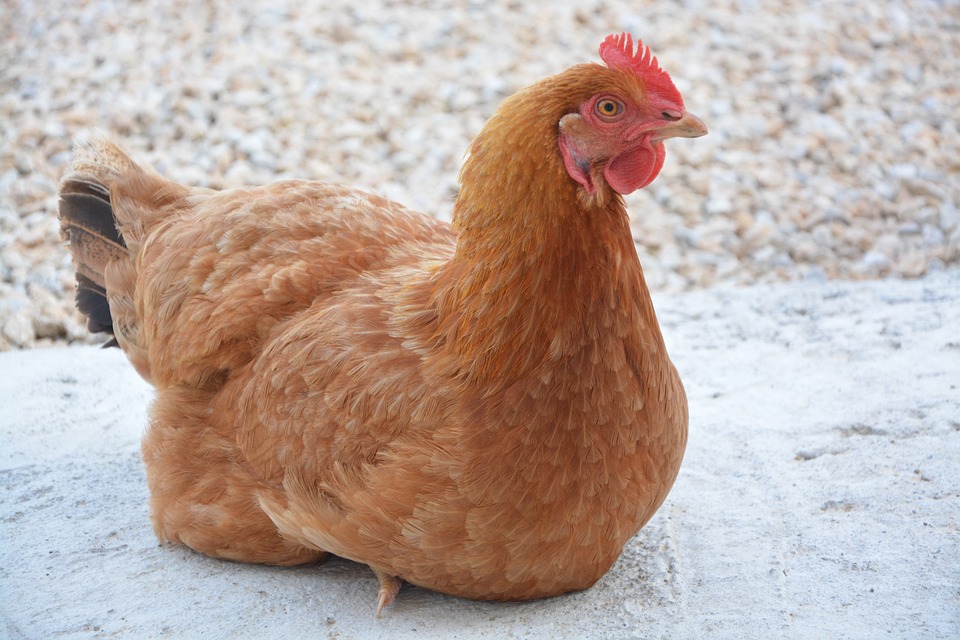
The Golden Comet chicken is one of the best breeds you can raise if you want to produce a ton of eggs. These birds are some of the best at laying lots of eggs, but unfortunately, they won’t do so for very long.
These chickens only live for a few years on average. They are prone to a variety of health issues related to their high egg production, including tumors in the digestive tract.
Jersey Giants
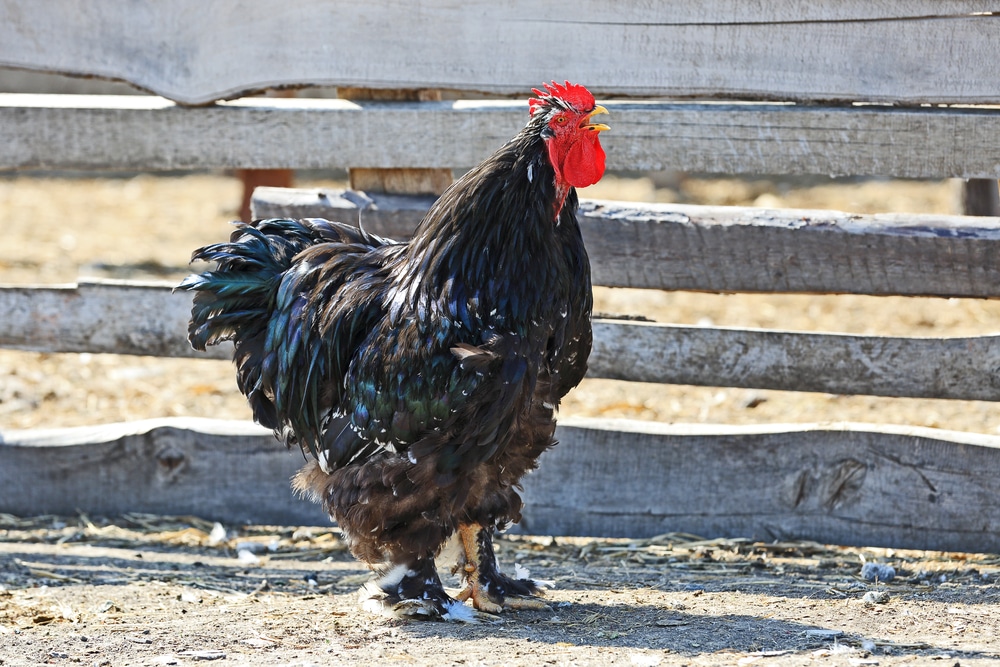
The Jersey Giant is a heritage breed that was developed sometime in the late 19th century. Despite being a heritage breed, however, it’s not one of the longest-lived. Because this chicken is so large, it has a short lifespan – often, it will only live for five to six years, even if raised in picture-perfect conditions.
Cornish Cross
This hybrid chicken breed is another to cross off your list if you’re interested in raising chickens until they are geriatrics!
Raised predominantly for meat, the Cornish Cross grows to massive sizes very quickly. Because of this, it isn’t known to live much longer than a year or soi. Not only is it usually butchered off at twelve weeks, but its fast growth rate leads to a lot of health problems, like heart failure.
How Long Do Chickens Live in the Wild?
Chickens are exposed to many more risks when they have to fend for themselves. Therefore, it’s uncommon for them to live long out in the wild.
After all, they will be more likely to fall victim to predators and the elements than if they were being raised in captivity. The average wild chicken will only live for about a year or two, if that.
How Long Do Chickens Lay Eggs?
Most young laying hens – known as pullets until they are one year old – start laying eggs when they are roughly 18 weeks of age. This can vary, with some chickens waiting until six months to start laying and others (usually hybrids) that start laying at just 16 weeks.
This production carries on for several years. It is dependent on the length of the day and most hens stop laying during the fall and winter months – when there is less than 12 hours of daylight available.
This depends on the breed, though, and on the conditions in which the hens are raised. Lots of people use lights in the chicken coop to simulate artificial daylight, which can provide a boost in laying. However, some people speculate that it burns hens out more quickly and that they won’t be as productive for as many years as a result. The natural pattern is for hens to stop or slow their laying during the winter.
Most hens produce eggs until they are about three years old. Production will start to taper off after that point. Some breeds that are known for laying a lot of eggs – including hybrid chickens like Golden Comets – may stop laying even sooner, at around two years.
Which Chicken Holds the World Record for the Longest Lifespan?
Here’s a fun fact – the world’s oldest living chicken actually has a place in the Guinness Book of World Records. The oldest bird in the world is named Matilda, a chicken raised in Alabama by two aspiring magicians who used Matilda as part of a popular stage show.
Matilda lived from 1990 to 2006 – that’s sixteen years, and more than double the average life expectancy for a chicken!
What’s truly interesting is that she never laid a single egg, which could be why she lived so long. Egg-laying uses up many of a chicken’s precious resources, and often, birds who have reproductive layers live much shorter lives.
What Are Some Common Causes of Premature Chicken Death?
Unfortunately, most people don’t get to experience the full life expectancy of a chicken because it never lives long enough to prove its abilities. It is very common for chickens to succumb to other causes before they can live out their full life spans.
Before we go into details, here are the common causes of premature death:
- Predation
- Disease
- Improper Living Conditions
- Raised for Meat
Predation
The most common cause of premature chicken death is predation. There are all kinds of animals that like the taste of chicken, including coyotes, snakes, hawks, raccoons, snakes, wild dogs, cats, and more.
If you’re able to protect your chickens from these threats with sturdy housing, you may be able to mitigate this threat.
Just remember that some predators are incredibly tenacious and smart – even rats know how to chew through chicken wire, and they can pose a serious threat to small chickens.
Disease
Another common cause of premature death is disease. This is not a problem that you will have to worry about as often if you have a closed flock that isn’t exposed to outside disease.
If your chickens regularly come into contact with other birds, though, you’ll need to watch out for communicable diseases.
It doesn’t just have to be chickens, either. Chickens can easily contract illnesses from wild birds, rodents, and other creatures.
Improper Living Conditions
Be mindful of your birds’ living conditions and make sure their home is clean and sanitary at all times to reduce this threat. A dirty chicken coop can increase the risk of disease and other health problems.
This will also reduce the likelihood of health issues like parasites and lice, which can also impact your chicken’s health.
Raised for Meat
If chickens are raised for meat, they’re usually killed early in life, which shortens their lifespan significantly. Chickens are usually slaughtered between 21 and 170 days old because that’s when they’re believed the have the best meat.
Believe it or not, chickens didn’t always live as long as they do now. These birds were historically kept only for eggs and then later became kept for meat. Chickens’ ancestors are wild birds, whose life expectancy was only a few years at best due to natural predation.
However, once chickens were kept by humans, more or less as pets (that also pooped breakfast!) that life expectancy gradually began to increase. Over time, chickens began to live longer and longer and those traits were bred into successive generations.
Frequently Asked Questions
Here are some common questions new chicken keepers have regarding lifespans.
At What Age is a Chicken Full-Grown?
Every chicken breed grows and develops at a different rate, but most chickens are full-grown by the time they turn one year old. Younger chickens usually have the best egg laying skills.
Can Chickens Live for 20 Years?
While it might be possible, there’s no official record of a chicken living for 20 years or longer. 8 to 10 years is long for most chickens, so if they live longer than that, then you have a very healthy bird!
Will Chicken Egg Laying Decrease When They Get Older?
Yes, most chicken breeds have a smaller egg production when they get older. Chickens don’t usually stop laying eggs at a certain age, but the rate they lay eggs at may continuously decrease. After a few years of having egg laying chickens, your birds may stop laying eggs completely.
The amount of eggs an older hen lays will depend on the breed. If you’re raising a backyard chicken for eggs, consider saving some egg recipes for later.
Do Chickens Live Longer in Captivity?
Yes, chickens usually live longer in captivity. They’re given the resources they need to thrive and they’re less likely to be eaten by predators. However, chickens in captivity may die before wild chickens if they’re killed for meat.
Help Your Chicken Have the Longest Lifespan!
The answer to “how long do chickens live?” varies greatly depending on the bird and the keeper. With proper care and a clean chicken coop, you can encourage a long chicken lifespan for all your birds. Start raising healthy chicks from the moment you bring your birds home.
Of course, there will always be factors outside of your control, but how you raise your chickens can have a big impact on how long they live.
